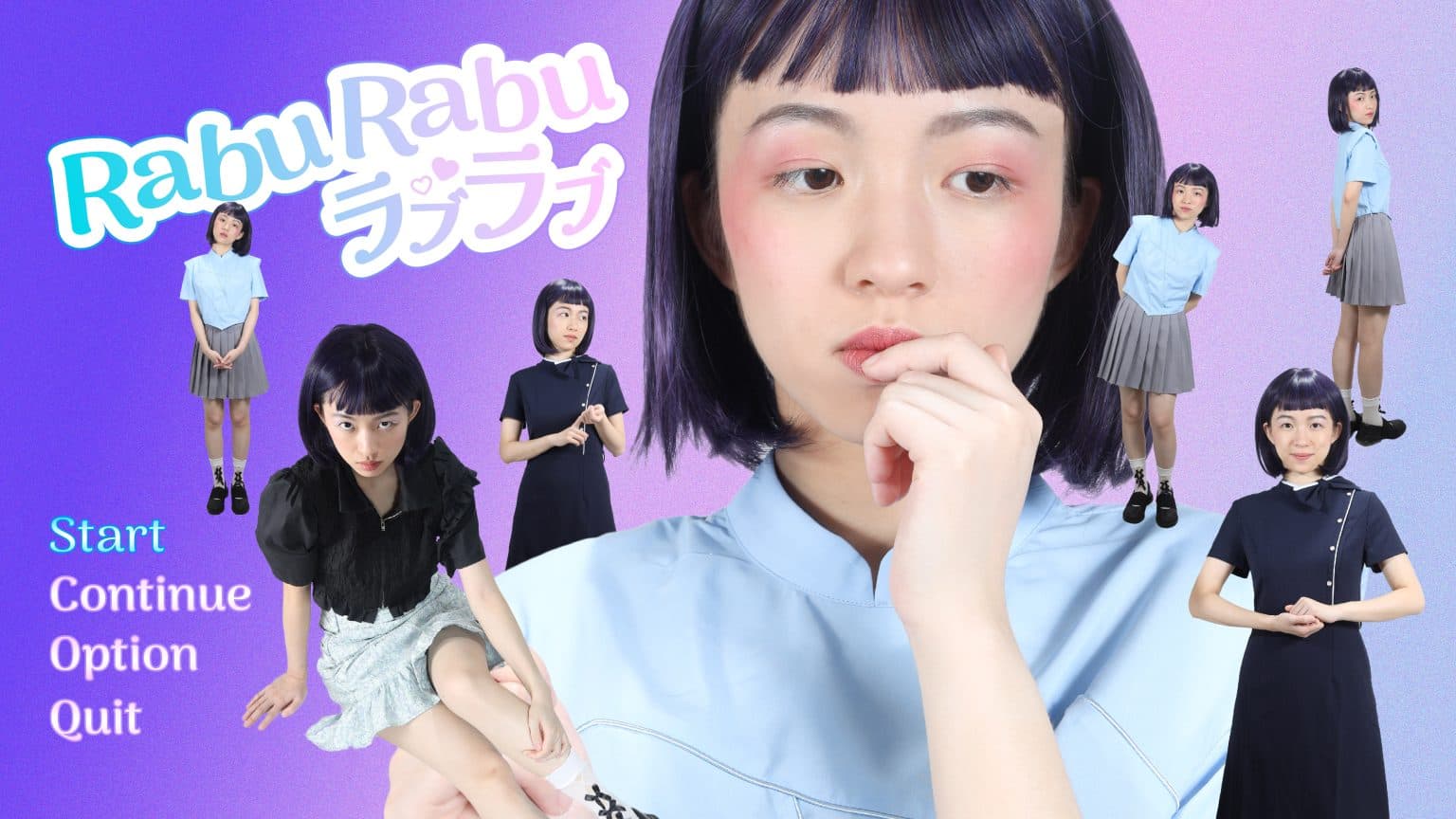Rabu Rabu
Rabu Rabu manipulates the framework and aesthetics of gal game, a type of Japanese video game that centred on interactions with attractive young girls, presenting a fictional gal game in which the path of falling in love and winning over the female protagonist no longer exists. In The End of Love: A Sociology of Negative Relations, Eva Illouz expresses that the idea of unloving is a plot without a clear structure. Mirroring the digital and physical AFK (Away From Keyboard) worlds, Rabu Rabu explores one’s agency within and beyond the screen in a heteronormative society of late capitalism and blurs the boundary between game and video. “Rabu rabu” means lovey-dovey in Japanese.
This piece is commissioned by Times Museum, Guangzhou, China, and the project Follow the Feeling, curated by Qu Chang.
17’44” (Traditional Chinese version); 18’18” (English version)
《Rabu Rabu》把玩日本文字戀愛遊戲的框架與美學,以錄像的形式呈現一個虛構的戀愛遊戲 ,然而墮入愛河或攻下女主角卻並不再存在於遊戲裡面。社會學家伊娃.易洛斯(Eva Illouz) 在《為什麼不愛了》思省「愛的終結並不是結構清晰的過程」。作品模糊電玩遊戲與影片之間邊 界,將數碼與真實世界並置對照,探索虛擬遊戲在異性戀霸權社會以及晚期資本主義下其內 外的能動性。「Rabu rabu」(ラブラブ)在日文裡有卿卿我我、甜甜蜜蜜的意思。
作品由廣州時代美術館以及由瞿暢策展的項目「跟著感覺走」委約創作。
17’44” (繁中版本);18’18”(英文版本)
videotage programme history /
vmac archived / 3 related artworks
about the artist /
Hou Lam Tsui (b. 1997) is an artist who works across moving image, sculpture, installation, and text. Her practice centres around personal experience, affect, gender politics, and peripheral storytelling. Tsui rethinks how femininity and queerness are imagined within cultures, critically exploring how media and consumer desires shape emotions, our notion of love, femininity, and identities by drawing inspiration from pop culture, advertisement, anime, literature and beyond.
Her work has been previously exhibited and screened at ACMI (Australia), Art Basel Films (Hong Kong), Beijing International Short Film Festival (China), Guangdong Times Museum (China), Para Site (Hong Kong), Tai Kwun Contemporary (Hong Kong), among others.
Tsui lives and works in Hong Kong. She received a BA in Fine Art and History of Art from the University of Leeds in 2018 and later obtained an MFA from the Chinese University of Hong Kong in 2024.
vmac archived / 6 artworks from the artist
All copyright reserved by the artist. 作品版權歸藝術家所有。
For enquires, please contact vmac@videotage.org.hk
